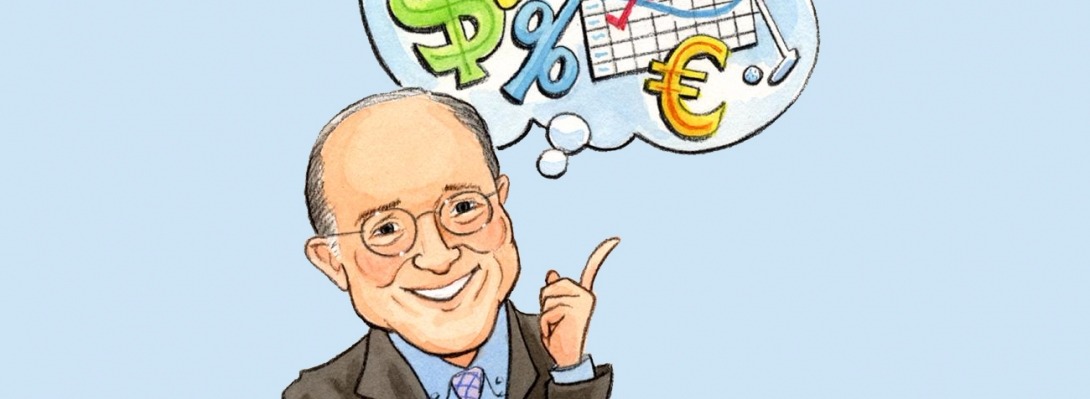|
7/6/2009
Dear Clients,
Before we get to our market review and outlook for the future, we will review some of the events of the recent past.
-
Five celebrities died in the past few weeks: Michael Jackson, one of the greatest entertainers of our time; actress Farah Fawcett; pitchman Billy Mays; Johnny Carsonâs famous second banana, Ed McMahon; and Karl Malden I am continually amazed at how much coverage the media gives to the passing of entertainers and celebrities. I think Bob Schieffer of CBS news said it best: âLetâs not mistake American icons for American heroes.â
-
Bernie Madoff, the individual responsible for the largest Ponzi scheme ever, was sentenced to 150 years in prison. âHere the message must be sent that Mr. Madoffâs crimes were extraordinarily evil,â Judge Chin said.
-
Iran officials confirmed President Ahmadinejadâs victory over challenger Mousavi after a recount of 10% of the ballots.
-
Facing an unusual political trial, Federal Reserve Chairman Ben Bernanke disputed accusations last week that he pressured Bank of America to acquire Merrill Lynch in a deal that cost taxpayers $20 billion.
In a three-hour hearing of the House Oversight and Government Reform Committee, Bernanke denied threatening to oust Bank of Americaâs CEO Kenneth Lewis or the bankâs board members if they abandoned the takeover after discovering spiraling losses at Merrill.
Throughout the day, Bernanke faced often hostile questioning â unusual for a Fed chairman, who typically commands deference in public settings.
Adopting the role of outsider, Republicans in particular have turned aggressive toward Bernanke, trying to link him to the Obama administration as advocates of government meddling in private industry. Many Republicans are suspicious of the administrationâs plan to expand the Fedâs regulatory powers.
Itâs an odd shift, because Bernanke is a Republican appointee, and many of his key advocates are Democrats. And it comes at a pivotal time: Bernankeâs term expires early next year, and President Barack Obama will have to decide whether to pick his own Fed chief or reappoint Bernanke.
Why is it that we often see Congress spending inordinate amounts of time investigating people and issues that do not appear to need investigating. In my opinion, Mr. Bernanke was the key player in pulling our economy back from the brink of financial meltdown.
And just a few months ago Congress spent a full day grilling Edward Liddy. Liddy had agreed to take the job of CEO of AIG for $1 a year to try to right the AIG ship, which was barely afloat.
-
The life of two auto giants / Who will buy the first Government Made car?
General Motors (1908-2009) was founded on September 15, 1908 by William Crapo Durant (1861-1947), and it grew to greatness under CEO Alfred Sloan. Peter Drucker centered his first great book, âConcept of a Corporationâ (1945) around Sloanâs style of management at GM. After World War II, GM eventually grew into the worldâs largest industrial corporation, employing over 650,000 people and drawing on over 30,000 suppliers worldwide, with outlets in 190 nations. Here is the arc of GMâs greatness, 1949 to 1988:
-
-
By 1949, GM reached #1 in corporate income in America, with net earnings of $656,434,232.
-
30 years later, in 1979, GM was still the largest U.S. corporation, with annual sales of $63 billion. The next year, and from 1980 to 1984, Exxon eclipsed GM as the largest U.S. corporation. But then:
-
In 1985, GM regained the top spot, with $96 billion in sales, eclipsing Exxonâs $86 billion.
-
In 1986, GM widened its lead, with $103 billion in sales, compared to Exxonâs $69.8 billion.
-
In 1988, GM swept the #1, #2, and #3 Powers Awards, given to the best-made cars for the price.
-
But then, in 2009, GM âdiedâ of old age, resurrected by legislation, and referred to as âGovernment Motors.â
GM has cut its brand list from eight to four. Gone are Hummers, Pontiacs, Oldsmobiles, and Saturns. (Perhaps the Cadillac division will lead GM to glory again, if regulators donât emasculate the Escalade.) GM has sold its Hummer brand to Chinaâs Sichuan Tengzhong Heavy Industrial Machinery Company and its Saturn brand and 350 dealerships to auto racing magnate Roger Penskeâs Automotive Group.
Chrysler Corporation (1925-2009) is also on its last legs. In 1920, Walter Chrysler walked out of a GM board meeting, vowing to start his own company, which he eventually did on June 6, 1925, his 50th birthday. The first Chrysler was a six-cylinder $1,500 luxury sedan. Chrysler was taking a big risk. Out of more than 1,000 car makers entering the business since 1905, only 15 survived to 1925, and only three made it through the Great Depression. The 1925 auto market was dominated by the $375 Ford Model T, but Walter Chrysler, a former president of Buick and VP at GM, made a big bet that people would pay four times that amount for a classy car, in the customerâs choice of colors, and his big life-changing gamble worked.
Three years later, on July 7, 1928, after Ford finally ended its Model âTâ era, Chrysler moved into the vacuum with the first Plymouth, inviting the press to witness the famous aviatrix Amelia Earhart sitting behind the wheel of their new âPeopleâs Car.â Over 30,000 people came to the Chicago Coliseum for a look at the new Plymouth. At an affordable $670, Chrysler sold over 80,000 Plymouths in its first year.
And now, this 84-year-old company has been reborn as Italyâs Fiat, in a deal engineered by Washington DC. According to The Wall Street Journal, internal Chrysler emails reveal that the Obama Administration rushed this shotgun marriage between Chrysler and Fiat. Despite worries about Fiatâs financial health and its willingness to share technology, the Supreme Court OKâd the deal.
-
Al Franken, the comedian from Saturday Night Live, has been awarded the Senate seat in the state of Minnesota. This gives the Senate Democrats a 60 person super majority, and therefore filibuster-proof.
-
California is in a state of financial emergency. If the state goes bankrupt, it will have national repercussions.
-
U.S. forces withdrew from Iraqi cities June 30th, turning security responsibilities over to Iraqi security forces. Some 130,000 U.S. troops will remain in Iraq, and some will remain at urban outposts to assist with security in cities if needed. But the coming weeks and months will be a test for Iraqi security forces seeking to maintain relative calm in the country.
-
Unemployment: Nonfarm payrolls declined by 467,000 in June, up from 322,000 in May. We are now at a 26 year high of 9.5%. Even though unemployment numbers are a lagging indicator (i.e., the economy recovers before the employment numbers), this still indicates the economy is perilously week.
Consumer spending, which represents about 70% of GDP growth, will continue to be impaired by the high unemployment. This could prevent a sustained recovery. It is likely that the number will exceed 10% before turning around.
-
North Korea fired seven ballistic missiles into the Sea of Japan on July 4th. North Korea is using these tests as a means of reaching political and military goals.
-
President Obama is headed to Moscow for a summit meeting with Russian President Medvedev. From there he will leave for the G-8 meeting in L'Aquila, Italy, followed by a visit to Ghana. These meetings hold special significance in our relationship with Russia.
MARKET REVIEW â A GLIMMER OF HOPE
The stock market closed its best calendar quarter of performance since the crisis began. Until its pause in late June, the market rallied for 14 straight weeks since the March 9th lows.
2nd Quarter Year to date (through 6/30/09)
Dow +11% -3.8%
S&P 500 +15% +1.8%
The quarter marked a period of healing for global markets and investors became more hopeful of an economic and sustained market recovery.
Is a new bull market emerging? We think not. We still believe that what is occurring is a cyclical (short term) bull market inside a secular (long term) bear market. We hope that we are wrong and do not wish to be pessimistic. However, we have found that in posturing our clientsâ portfolios, it is better to prepare for the worst (the bear) and be pleasantly surprised when the bull shows up. So yes, we believe the markets and the economy are not yet âbetter, but just less bad.â (Note â please excuse the grammar).
Riddle: It lives in winter, dies in summer, and grows downwards from its base. It is not a plant. What is it? Answer at the bottom.
EYE OF THE HURRICANE
Where do we go from here? Years ago, before we had the ability to forecast hurricanes, you could have been hit by a hurricane either âhead on,â or brushed by its wall. If you were hit head on and then the âeyeâ came along, you would believe the worst is over, only to be hit by the back end of the storm.
I do not believe we are in the âeye;â I believe the worst is over. But there will still be storms along the way. Investors are likely to be disappointed by the strength of the recovery, and be skittish anytime the market has a few bad days in a row.
A return to positive GDP growth is likely by the end of 2009, although the turnaround will be gradual.
Our firmâs outlook remains cautious due to continuing struggles in housing, corporate earnings, credit availability, and employment. There is also a paradox of debt. If too much debt is a problem, how can adding debt be the cure? We do believe inflation could be a problem in the future, but not for at least two years.
CONCLUSION
We believe things are âless bad, but not better.â We are âCAUTIOUSâ in our approach to your investment portfolios.
If you have questions or concerns, please call at anytime to set up an appointment or discuss your portfolios.
We hope you had a happy and healthy July 4th weekend. Enjoy the summer!
Edward J. Kohlhepp, CFPÂź, ChFC
Edward J. Kohlhepp, Jr., CFPÂź, MBA
Quote: George Washington is the only president who didnât blame the previous administration for his troubles. ~Author unknown
Answer to riddle: An icicle
Citations:
Information for the above article was gathered from a number of sources: First Eagle Funds, Navellier.com, bloomberg.com, finance.yahoo.com, money.cnn.com and Peter Montoya Inc.
|




